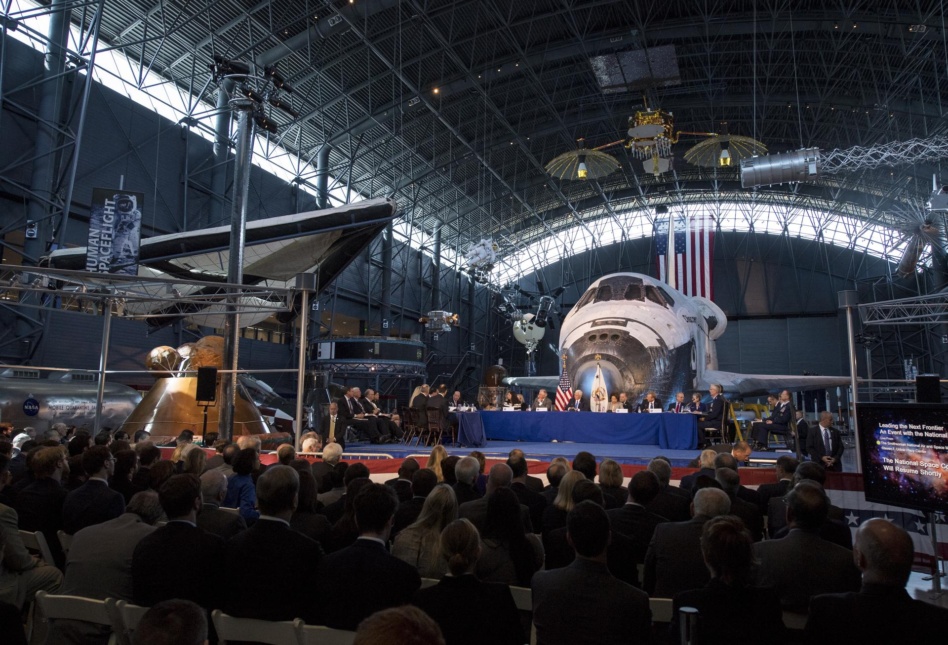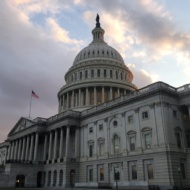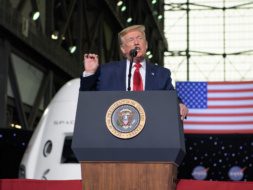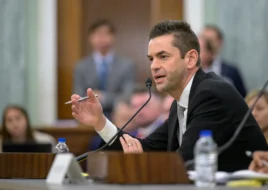If the Trump administration’s space policy seems scattershot to you, you’re not the only one noticing. Amid clamor from industry for more coordination, it appears the National Space Council (or something like it) is coming back.
No duh: Talk of advancements in space science, discovery, and warfighting doesn’t match proposed budget cuts that threaten the sector. One reason why? There aren’t voices in the executive branch who care about space writ large.
“[There is] no space council, no space person…There is nowhere in this administration where that sophisticated balancing of needs, of requirements, is happening,” one space policy veteran complained to Payload in April.
Traditionally, that happens at the NSpC, which has come and gone (based on the White House’s interest in space policy) after it was first created under then-president George H.W. Bush in 1989.
Squeaky wheel: Creating a go-to person or entity for space at the White House is the top ask from the Aerospace Industries Association: “Maintain an active space policy function within the executive office of the president to coordinate a whole-of-government strategy with input from all stakeholders.”
Musky: During the first Trump term, the NSpC under VP Mike Pence was active, and made key decisions on issues including lunar exploration and space traffic management—which are still guiding policy today. When Trump was reelected, SpaceX’s top lobbyist Mat Dunn pushed to nix the council as an alternate power center.
Rumors spread in recent weeks that an opening to pivot back to the NSpC will happen with SpaceX CEO Elon Musk’s expected exit from the White House, when his period as a special government employee ends around the end of this month. Politico reported Friday that it’s happening; the White House hasn’t offered any official comment.
What it do: “A new NSpC would help centralize the policy-making process in the White House and help ensure that the broad range of space policy issues facing the nation, such as the US retreat from space science, are properly considered within the context of the president’s goals of space leadership,” Planetary Society policy chief Casey Dreier told Payload.




